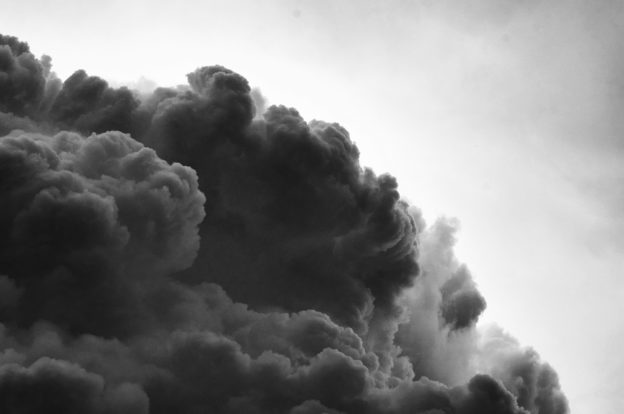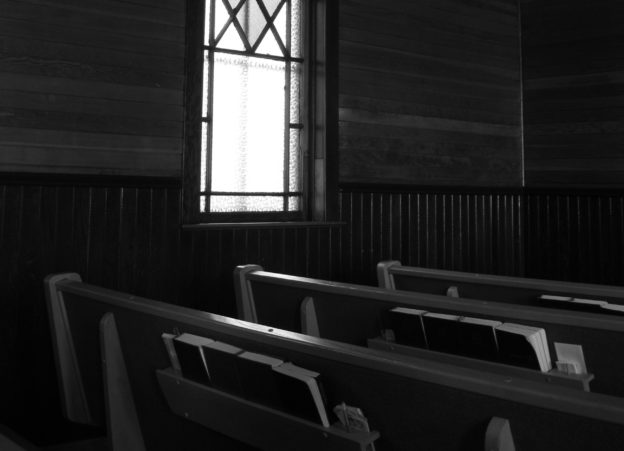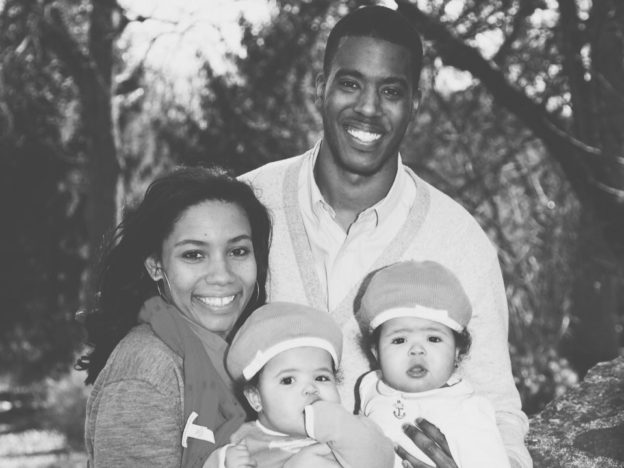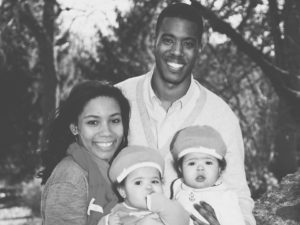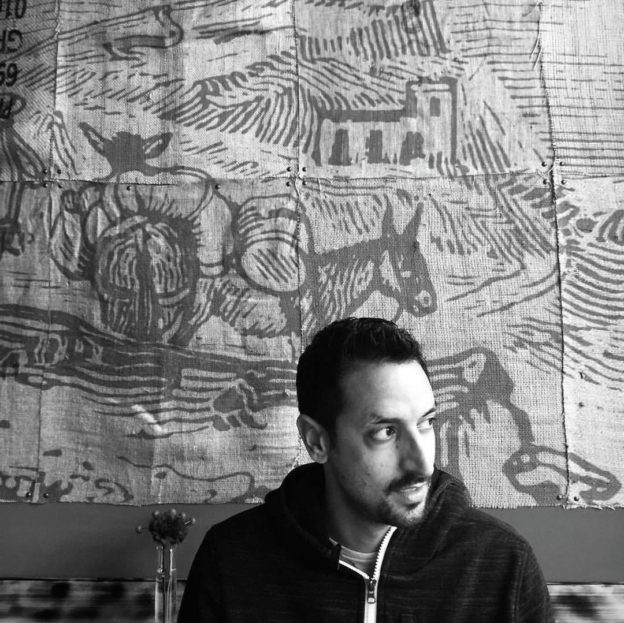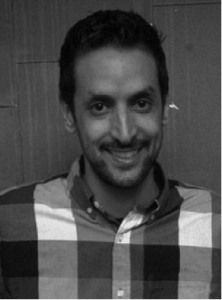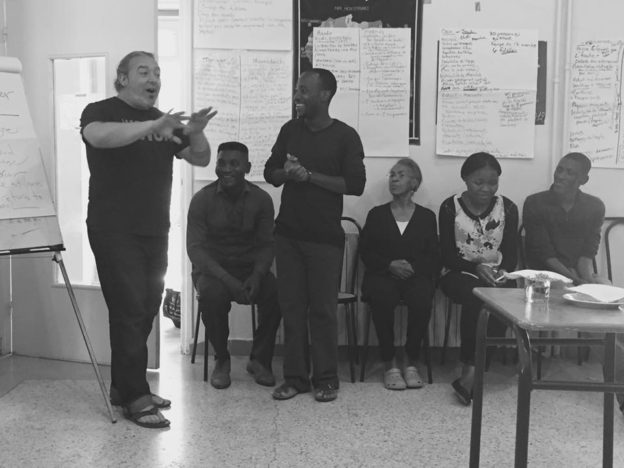by Eric Leroy Wilson
Holy Monday is fast approaching. I am faced with a time of reflection about Jesus turning over tables and benches as He cleanses the Court of the Gentiles. While several moments in Jesus’ life are not included in all four gospels this moment certainly is. John places this event early in the earthly ministry of Jesus while Matthew, Mark and Luke tie this event to the Pharisees justification for his unjust arrest, imprisonment, torture and eventual execution. This rhythm is still very much in play today. As we suffer from our current psychosis of nationalism we look for clear cut justification for heavy handed policing, quick convictions, and the expansion of the prison industrial complex. But Jesus turns over tables.Jesus turns over tables and benches in our lives to jar us into seeing our world in vastly different ways. Circumstances present themselves on a monthly, weekly, and even daily basis to invite us to disenthrall ourselves of our surety, romance with certainty, and our clinging to status quo. These table turning moments, chance encounters, acts of beauty and of banality, awe inspiring connections with creation, can serve to usher us toward an embrace of Christ counsiousness. In the following poem I attempt to capture this moment of table turning. The attempt is to explore the moment in the temple frozen in time and space where Jesus takes radical action to shake the world out of it’s lust for isolationism and avarice. May it serve to speed us towards a day where there is space made for all.
Turning Tables/Space Making
By Eric Leroy Wilson
The gasped word “wait“ hangs full bodied in thick air.
Tables fly and the jangle of shekels, silver coined clashing ring like the sound you’d image the song sun beans make.
Tables and benches in slowed rotation in space before gravity gets it way.
Wait…. Hold on…
Muscles of a Rabbi exhale as wood gives way to force,
Hands that would soon hold nails find release as objects once supine now fly.
The gasp of a moneychanger far too familiar with his own greed,
The flutter of birds questioning why are they now freed,
The strain of a vein on the furrowed visage of a gluttonous High Priest,
The subtle pop of boiling blood from the heated hearts of Pharisees hardened for far too long,
Wait… hold on… My hand half raised.
As the guttural rumble of oxen grow to the beginning of their baying,
As the sheep build up pressure behind pallets for their bleating,
As Peter reaches for the prophet for restraining,
As the corner of my eye clinches to protect for projectiles and stray pinions,
Far away in some far corner of creation a host of six winged angels fall back defensive.
As God and the Holy Spirit shout acclamation,
Empire is critiqued, with no need for explanation.
What was alluded to as implicit now made full physical and explicit.
Sweat from a Saviors brow now dripping.
Wait… wait… hold on, I stutter with one hand raised.
The crack of leather cuts the fleshy back of open temple atmosphere.
A gall force wind whips with a backhand slash.
I’m pushed forward by the blast.
If only to stand, adjusting tendon, sinew and calf.
Heart being pushed from its lodging by a battle cry I never knew I knew.
A yell held silent for thousands of years I find myself now screaming:
Wait!
Wait!
Wait!
His rage so well placed;
Not on merchant,
Buyer,
Banker,
Or priest.
But on this nationalism so ensnaring there is no place for the other to be.
An anger made beautiful by its sublimity.
Wait!
Hold on Jesus!
You would do all of this for me?
To make space for the likes of us to pray?
And find our way,
In the presence of loving
Trinity.
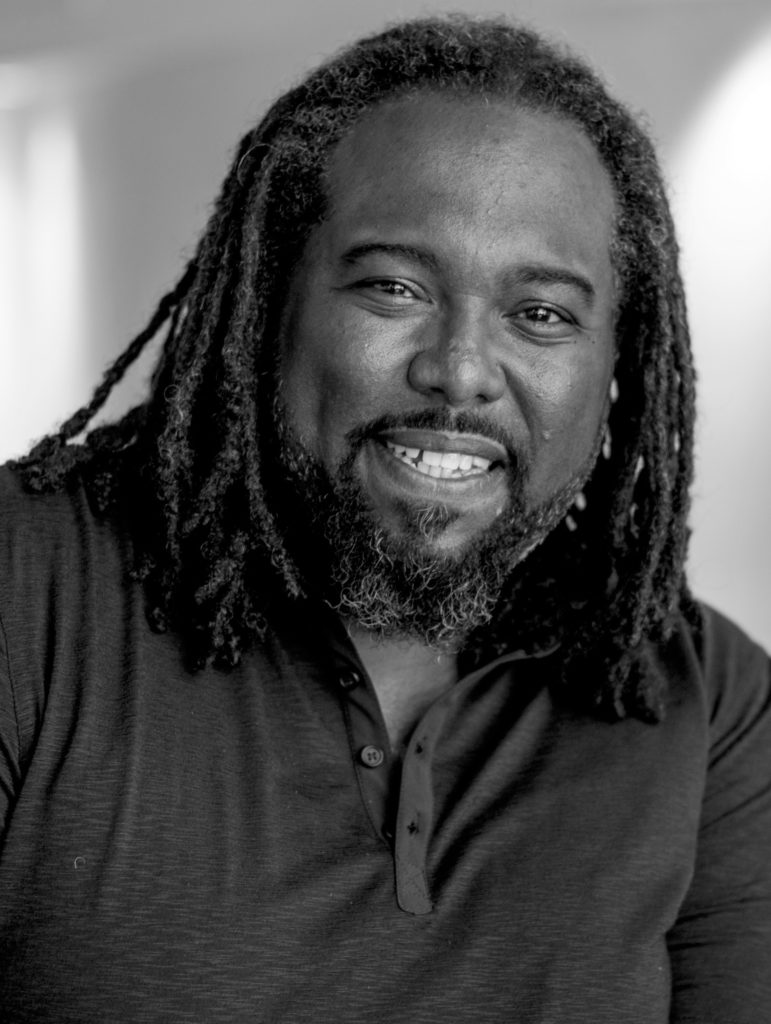 Eric Wilson serves as the Associate Chaplain at Pepperdine University in Malibu California. Wilson is a certified Spiritual Director, Executive Coach and is a religion blogger for the HuffPost. He is an award winning playwright and theatrical director. His work has been published and performed around the country including the John F. Kennedy Center in Washington D.C. Eric’s work attempts to leverage contemplative practice, the arts, and soul care for the purpose of fostering social justice in the world. Wilson’s book, Faith the First Seven Lessons was released Fall of 2016.
Eric Wilson serves as the Associate Chaplain at Pepperdine University in Malibu California. Wilson is a certified Spiritual Director, Executive Coach and is a religion blogger for the HuffPost. He is an award winning playwright and theatrical director. His work has been published and performed around the country including the John F. Kennedy Center in Washington D.C. Eric’s work attempts to leverage contemplative practice, the arts, and soul care for the purpose of fostering social justice in the world. Wilson’s book, Faith the First Seven Lessons was released Fall of 2016.
